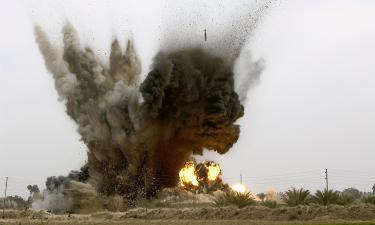Russia urges Ukraine to translate into reality the principle of strategic partnership
Russia's Foreign Minister Igor Ivanov has urged Kiev to realise in practice the principle of strategic partnership of the two countries.
This principle underlies the treaty of friendship, cooperation and partnership, which the presidents of the two states signed in 1997, the Russian diplomatic chief recalled, speaking at Kiev University on Tuesday.
"Our common goal now is to bring into the open this principle and put it into practice, in specific areas of Russian-Ukrainian cooperation," Ivanov said. Replying to the question of why this problem gained currency now, the Russian foreign minister indicated that this is due, first, to the fact that relations between the two countries "are now mature enough to be imparted a real strategic character and given a long-range future orientation." Second, the Russian minister remarked, "Russia and Ukraine are addressing largely similar problems to ensure steady social and economic development of their countries, to raise the living standards of their people, and integrate into the world economy." According to Ivanov, the economic interests of Moscow and Kiev are closely intertwined and it is quite obvious that "these problems are better tackled in cooperation, rather than single-handed." Third, Ivanov commented, "successful solution of our domestic problems depends largely on how favourable international conditions will be, in which our countries are to act in the years and decades to come." In Ivanov's view, the strategic character of Russian-Ukrainian partnership is connected with the situation on the European continent.
The Russian minister pointed out that "Europe is one of the key foreign policy priorities both for Russia and for Ukraine." But, he emphasised, "we do not consider that differences in choosing some or other form of developing relations with the European Union and NATO set the interests of Russia and Ukraine in Europe against each other." The main point, Ivanov believes, is that "our countries are similarly interested in Europe shaping itself as a common space of security and economic development, without any dividing lines." The Russian foreign policy chief is of the opinion that this basis "lends itself to the widest possible coordination of efforts, including on a very packed agenda being discussed within the Russia-NATO Council." The Russian foreign minister recalled that not so long ago the leaders of Russia, Ukraine, Belarus and Kazakhstan agreed to set about establishing a common economic space. "Implementation of this major project would not only speed up the economic development of our countries, but it would also greatly strengthen their international positions," the Russian minister emphasised.
He recalled that the other day President Vladimir Putin, in his address to the Federal Assembly, noted that "unifying economic processes going on in the CIS are related to integration of our countries into the world economy and are helping to implement this integration in a dynamic way, on terms more favourable for all our partners. Ivanov also said that this postulate of the Russian president "is particularly important in the context of keen competition in the world economy, in which our countries as a rule occupy far from advantageous positions".
Subscribe to Pravda.Ru Telegram channel, Facebook, RSS!




